
Groundnut production can hold many benefits for smallholder farmers, especially when included in a crop rotation programme. These benefits include enhancing the nitrogen content of the soil.
Groundnuts do best in warm regions, where the minimum air temperature does not fall below 15°C during the growing season. The optimal air temperature for production of the crop is between 24°C and 32°C. Dryland production requires an annual rainfall of between 450mm and 600mm for a good yield. Any type of irrigation will benefit the crop.
Groundnuts grow best in sandy soil with less than 15% clay. The best time to plant is from early November to no later than 25 November. Planting after this will result in a significant drop in yield, as the growing season will be too short for the plants to mature properly.
SOIL PREPARATION
Prepare the land, and particularly the seedbed, thoroughly, ploughing or digging the soil and removing weeds. No plant residue should be left on the ground, as this can harbour diseases that may cause the crop to fail. The seedbed should be fine and level to ensure even germination as well as even maturing of the crop.
PLANTING
Use certified groundnut seed; its germination has been evaluated and its quality can be relied on.
Before planting, coat the seed with tetramethylenedisulphotetramine (TMDT) or a similar compound, taking great care to follow the instructions on the label. This treatment will ensure that the seed do not rot when attacked by fungi in the soil.
This story is from the December 04, 2020 edition of Farmer's Weekly.
Start your 7-day Magzter GOLD free trial to access thousands of curated premium stories, and 8,500+ magazines and newspapers.
Already a subscriber ? Sign In
This story is from the December 04, 2020 edition of Farmer's Weekly.
Start your 7-day Magzter GOLD free trial to access thousands of curated premium stories, and 8,500+ magazines and newspapers.
Already a subscriber? Sign In
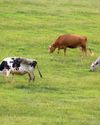
Africa goes from net carbon sink to source
New research shows Africa's impact on greenhouse gases and the need to focus on climate-smart agriculture
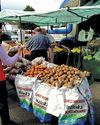
Ireland potato farmers unable to complete planting
Irish potato farmers have reported a delay in harvest and said that the UK might have to prepare for shortages of the produce. The shortfall is due to extreme wet weather during their planting season.
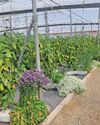
Zero-residue fresh produce a reality
Retail giants are calling for caution when using biologicals and chemical pesticides,

Big boost for mohair producers in Eastern Cape
A collaboration between the Eastern Cape Development Corporation (ECDC) and the Mohair Empowerment Trust (MET) has resulted in a R1,4 million injection into four emerging Angora goat farming operations in the Eastern Cape.

KZN Youth Show at Roval Agricultural Exhibition
The KZN Youth Show will run from Friday, 24 May to Sunday, 26 May at the Royal Showgrounds in Pietermaritzburg.
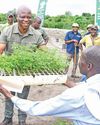
Hemp permits and irrigation system handed over
In an effort to fast-track the entry of rural farmers into the cannabis and hemp industries, KwaZuluNatal Minister for Agriculture and Rural Development, Super Zuma, visited the Shukasibheme Project in Mbazwana, a co-operative in Mseleni, uMhlabuyalingana in the Umkhanyakude District, to hand over cannabis and hemp permits as well as a borehole and irrigation system.

Meet some of the heroes behind avitourism destinations
Exploring what the Garden Route offers birdwatchers, Brian Berkman discovers some special people who run hospitable places to meet and see a variety of species.
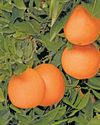
What the Citrus Academy offers aspiring producers
Cobus du Plessis takes a look at the Citrus Growers' Association of Southern Africa's Citrus Academy and how it is helping to develop aspiring farmers in the sector.

Natural-born killers of the insect world
The Myrmeleontidae family of lacewings from the Neuroptera order of insects consists of about 2 000 species of which 125 are found in South Africa.
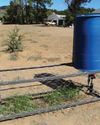
Seeder kick-starts vegetation in challenging environments
Dr George Craven of Noorspoort, Steytlerville, in the south-eastern Karoo, is successfully using a home-built 'bedstead seeder' to re-establish veld plants in an arid area, writes Roelof Bezuidenhout.